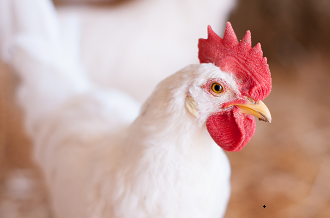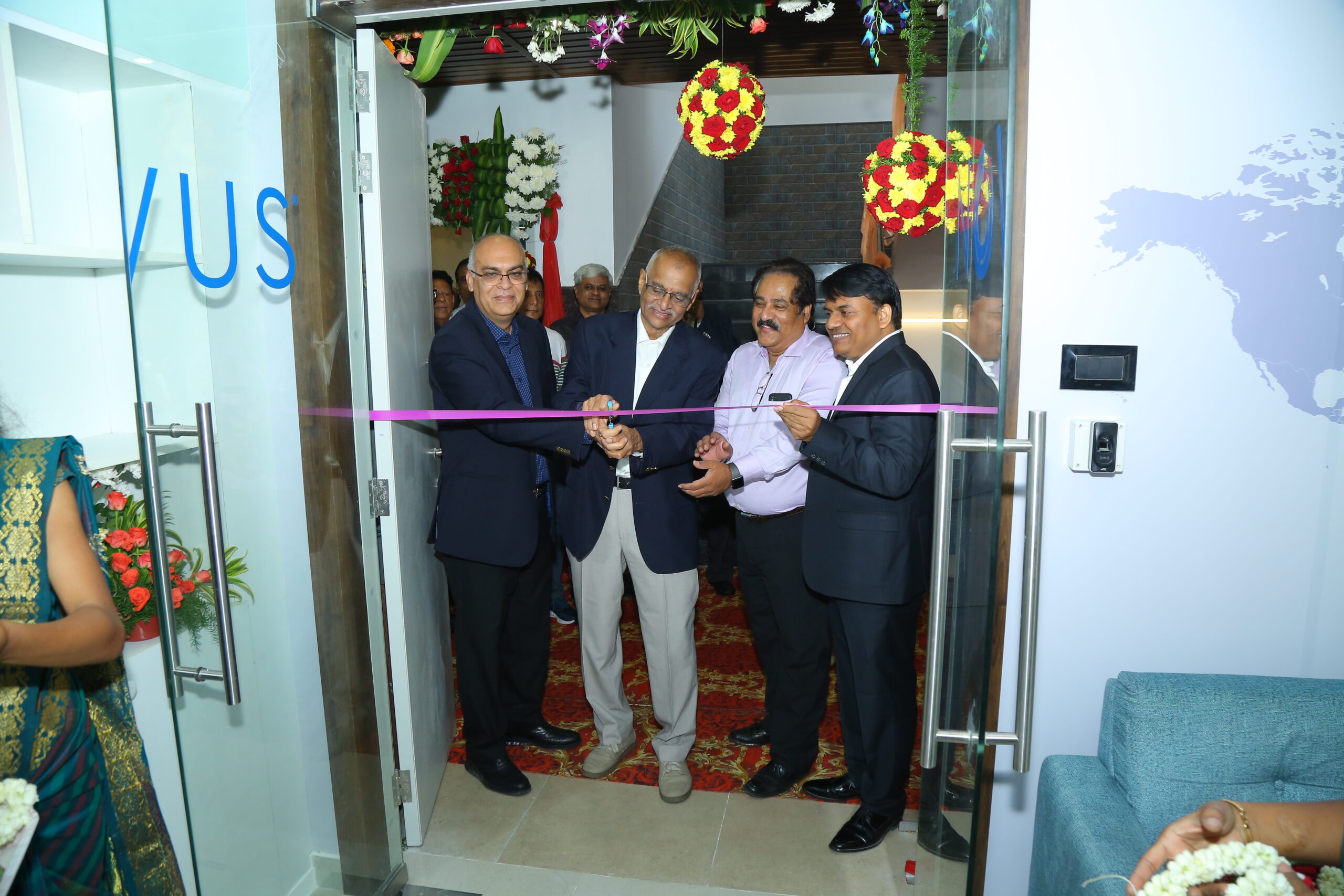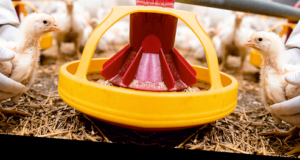Effects of heat stress in birds:
1. Heat stress have direct effect:
a) on feed intake, growth rate, body weight in Broilers and Layers.
b) and reproductive performance and egg production & egg quality in Layer birds.
2. Feed intake will reduce by 1 % for each one-degree centigrade rise in the temperature from 22C – 32C.
a) and 5% for each one-degree centigrade rise in the temperature range of 32C – 38C.
3. Water intake will increase by 7% for every degree rise in temperature above than 21C.
NUTRITIONAL CHANGES
4. Dietary Energy – Fats/Oils
a) Panting increases the need of maintenance energy to dissipate body heat during the high environmental temperature.
b) The energy requirement for maintenance decreases by about 30kcal/day with increase in environmental temperature above 21 °C.
c) Therefore, the concentration of energy should be increased by 10%, so the absolute energy requirement is not affected by heat stress.
d) Increase in energy intake also increases the fat deposition in the carcass and mortality.
e) Under such conditions, dietary supplementation of maximum 5% fats or oils helps to reduce heat production due to their higher energy value and lower heat increment compared to carbohydrates and proteins.
5. Dietary Protein – Amino acids
a) Bird utilizes much more amino acids during heat stress.
b) Supplementation of good quality protein rich raw materials with higher digestibility is required in summer.
c) Ideal protein formulation with digestible amino acid levels suits perfectly for summer.
d) For summer, the digestible amino acid levels need to be increased 3-5%.
e) Cost of this addition can be minimized by including a Multi-Protease enzyme in the diets.
f) Cost of Multi-Protease can be easily adjusted by considering 0.2% CP or 1% DAA matrix. Incorporation of good Multi-Protease enzyme is most ideal to reduce amino acid variability, protein wastage, litter ammonia and stress.
g) It will balance all essential amino acids, optimize performance, and reduce cost of production.
6. supplementation of vitamin A, E and C has received much research attention as an antioxidant in poultry during summer heat stress condition.
a) As all these are effective in slowing down the lipid peroxidation process by eliminating the free radical forms during excessive heat in the membranes of cells and subcellular organs.
7. Vitamins and Minerals
a) One of the major consequences of summer heat stress is increase in mineral excretion and lowering the levels of these key nutrient in circulating bloodstream and liver.
b) All Vitamin and Mineral levels need to be increased by 10-20% during summer stress so that even if bird consumes less feed, these essential nutrient levels are maintained in birds.
c) Storage of vitamins, enzymes, and probiotics in a cooler place of feed mill avoids the efficacy loss due to environmental extremities.
d) Inclusion of Vitamin C and Vitamin E at a level of 100-200 ppm is recommended for stress relief and immunity.
e) Similarly, minerals like Manganese (Mn), selenium (Se) and zinc (Zn) plays key role in improving immunity.
f) Supplementation with Vitamin D3 is useful during summer stress to fulfil any deficit of calcium absorption and for better bone mineralization.
8. Choline chloride dosage may be increased during summer stress to ensure effective utilization of fat & nutrients, prevent fatty liver & partial methyl donor effects.
9. Dietary Electrolyte Balance (DEB)
The key elements involved in the maintenance of dietary electrolyte balance (DEB) in body fluids are sodium (Na), potassium (K) and chloride (Cl).
a) The altered balance of these elements in body fluids during heat stress mainly suppresses growth of broilers and impairs eggshell quality of laying hens due to hyperventilation and results in respiratory alkalosis.
b) Thus, the supplementation of their compounds such as ammonium chloride (NH4Cl), sodium bicarbonate (NaHCO3), sodium chloride (NaCl), potassium chloride (KCl) and potassium sulphate (K2SO4) will fulfill the requirement of these elements and other electrolytes are well documented.
c) Addition of electrolytes through water can also help in temporary basis.
10. FEEDING METHODS
A good strategy is to withdraw the feed before six hours of an anticipated peak temperature to realize the full impact of this practice, because food remains in the intestine for up to six hours.
11. Research and practical experience have clearly demonstrated that adding certain additives
a) Probiotics:
Restore & maintain the natural stability of gut microbiota
b) Acidifiers
Maintain intestinal integrity: Natural growth promoter
c) Immunomodulators
Stimulate the immune system
d) Enzymes:
Improve nutrient digestibility
e) and combination as per individual farm experience can help reduce the impact of heat stress, improve feed intake & growth and in general enhance animal health.

Dr V Rajendra Prasad
(Poultry Consultant)















